Uncategorized
-
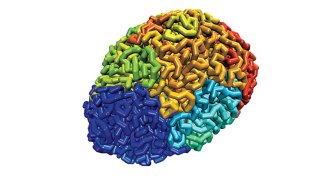 Genetics
GeneticsThe art of DNA folding
Cells must compress genetic material into a nucleus that measures only about 5 micrometers across. To accomplish the feat, cells make loops in the DNA.
-
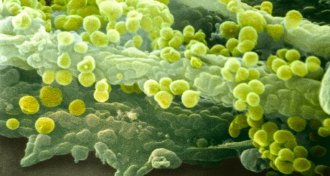 Health & Medicine
Health & MedicinePriming the elderly for flu shots
A drug that shuts down a potent signaling molecule in cells might boost protection elicited with flu vaccination, a study finds.
By Nathan Seppa -
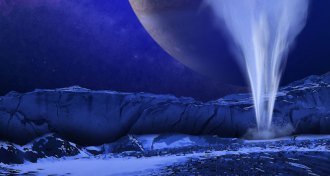 Astronomy
AstronomyEuropa’s geysers play hard-to-see
Follow-up observations of Europa failed to confirm the existence of geysers venting the Jupiter moon’s hidden ocean into space.
By Andrew Grant -
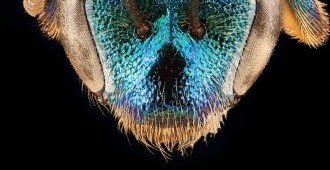 Animals
AnimalsBees, up close and personal
A photo archive from the U.S. Geological Survey's Bee Inventory and Monitoring Lab offers detailed photos of bee species.
By Susan Milius -
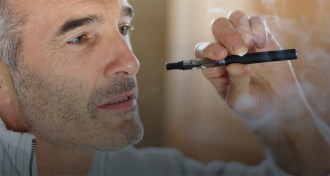 Health & Medicine
Health & MedicineOnline favorites of 2014
Science News' website traffic reveals the most-read news stories and blog posts of 2014.
-
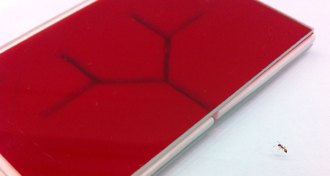 Animals
AnimalsRock ants favor left turns in unfamiliar crevices
Rock ants’ bias for turning left in mazes, a bit like handedness in people, may reflect different specializations in the halves of their nervous system.
By Susan Milius -
 Life
LifeHydrogen sulfide offers clue to how reducing calories lengthens lives
Cutting calories boosts hydrogen sulfide production, which leads to more resilient cells and longer lives, a new study suggests.
-
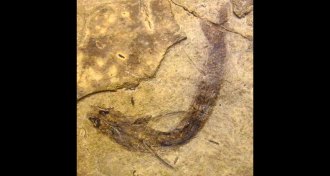 Life
LifeFossil fish eye has 300 million-year-old rods and cones
A fossil fish shows the earliest evidence of rods and cones, cells essential for color vision in vertebrates.
-
 Genetics
GeneticsThe year in genomes
From the tiny Antarctic midge to the towering loblolly pine, scientists this year cracked open a variety of genetic instruction manuals to learn about some of Earth’s most diverse inhabitants.
By Meghan Rosen -
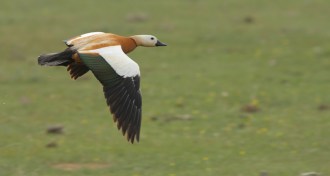 Life
LifeBird flu follows avian flyways
A deadly bird flu virus spreads along wildfowl migration routes in Asia.
-
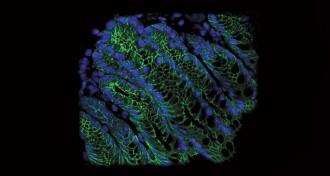 Microbes
MicrobesThe year in microbiomes
This year, scientists pegged microbes as important players in several aspects of human health, including obesity and cancer.
By Meghan Rosen -
 Chemistry
ChemistryRetraction looms for brute-force chemistry study
A 2011 study on tearing apart ring-shaped molecules is set to be retracted following a misconduct investigation.
By Beth Mole